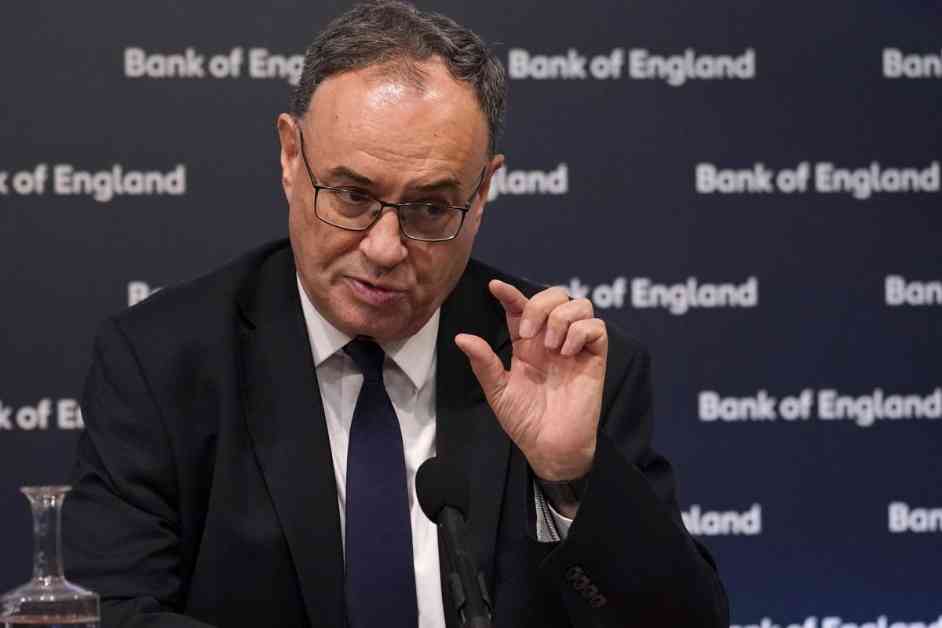Bank of England Maintains UK Interest Rates Amidst Stubborn Inflation
The Bank of England governor, Andrew Bailey, emphasized the need for caution in adjusting interest rates in the UK during the month of August. With the latest inflation figures showing a persistent high, the Monetary Policy Committee (MPC) is widely expected to keep the base rate unchanged at 5 per cent. This decision comes at a time when the global economy is still recovering from the impacts of the financial crisis in 2008.
The previous rate cut from 5.25 per cent last month marked the first reduction since 2020, providing some relief to borrowers grappling with the ongoing cost-of-living crisis. However, the move was met with disappointment from savers who saw diminishing returns on their investments. Bailey justified the rate adjustment by pointing to the easing inflationary pressures that allowed for the reduction.
Inflation for August remained steady at 2.2 per cent, slightly above the Bank of England’s 2 per cent target but below the Bank’s own projection of 2.4 per cent for this period. The decision to maintain the base rate at its current level implies that mortgage repayments are unlikely to see any immediate changes, offering stability to homeowners in uncertain economic times.
Looking Ahead: Potential Rate Cuts and Economic Outlook
Despite the decision to keep interest rates steady for now, there is a glimmer of hope for borrowers facing financial strain. If inflation continues to stay below the Bank’s anticipated trajectory, there may be room for a rate cut in November. This prospect offers some relief to individuals and businesses navigating the challenges posed by the current economic climate.
The ongoing uncertainty surrounding the economy and the impact of the pandemic have led to cautious optimism among economists and policymakers. The Bank of England’s approach to interest rates reflects a delicate balance between supporting economic recovery and managing inflationary pressures. As the UK continues to navigate these challenges, the decision-making process around interest rates will play a crucial role in shaping the country’s financial landscape.
Market Reactions and Public Sentiment
The response to the Bank of England’s decision to maintain interest rates has been mixed, with borrowers and savers voicing contrasting opinions. While borrowers welcome the stability in mortgage repayments, savers express concern over the diminishing returns on their savings. The disparity in reactions underscores the complex dynamics at play in the financial market and the broader economy.
As the UK economy seeks to rebound from the impact of the pandemic, the role of the central bank in managing interest rates becomes increasingly significant. The delicate balance between supporting growth and controlling inflation requires careful consideration and strategic decision-making. The upcoming months will likely see continued scrutiny of the Bank of England’s policies and their implications for various sectors of the economy.
In conclusion, the Bank of England’s decision to maintain interest rates at 5 per cent reflects a cautious approach to economic stability. With inflation remaining stubbornly high and uncertainty lingering in the market, the central bank’s role in navigating these challenges is paramount. As the UK economy continues to recover, the effectiveness of monetary policy in addressing inflation and supporting growth will be closely monitored.












